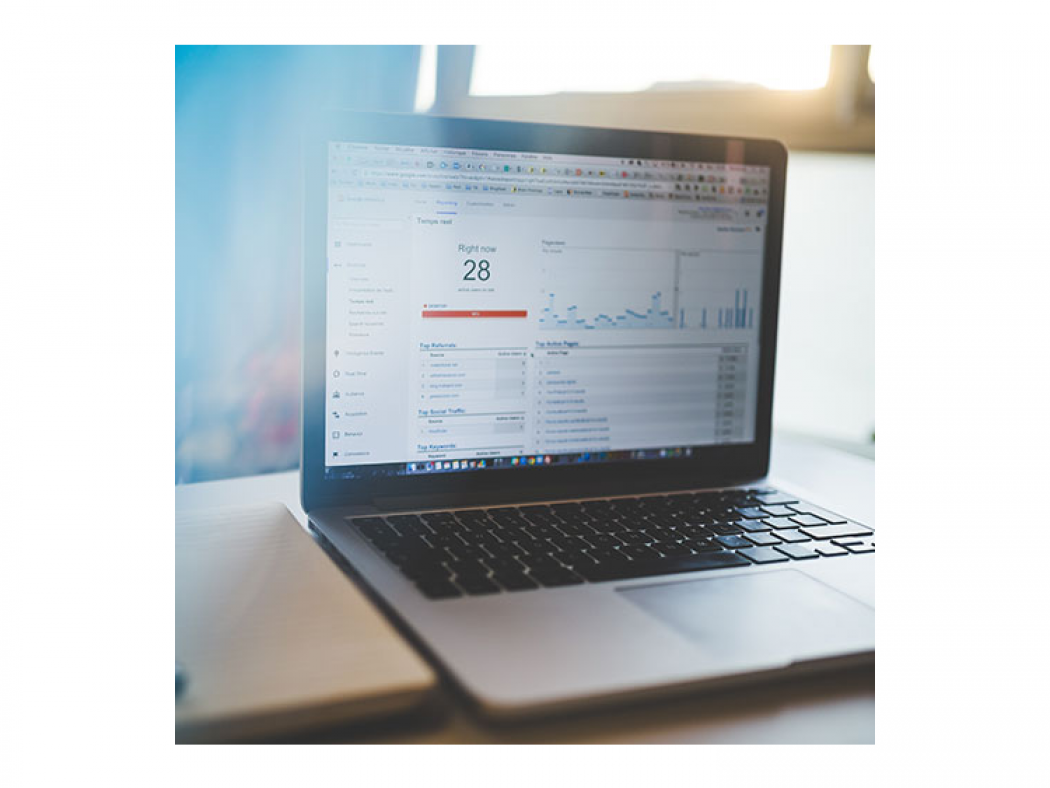Learning to Love Your Data

As a society, we’ve more or less accepted that everything we do online is monitored and logged for someone to analyze later on. The fact that you are reading this blog post right now only adds to the vast amounts of data collected around the world. “Big data” has been a buzzword for the last decade, and you may be tired of hearing about it—but the sheer volume of data consumed each day is not going to decrease any time soon.
According to the World Economic Forum, 500 million tweets, 294 billion emails, and 4 million gigabytes of Facebook data are generated every day. And that’s just a fraction of the 59 zettabytes of data created and consumed by the world in 2020. With so much data being generated and stored every day, it’s natural to wonder what it’s all for. Who gets to use this data? How will they use it? Do I have a say in what data are collected?
As the spooky month of October draws to a close, I won’t recount horror stories about recent data breaches involving your favorite department store or social media platform. Instead, I want to describe some of the positive ways in which data collection affects our daily lives. One of my personal favorites: opening Netflix after work and seeing its spot-on recommendations for my next binge. And—though it sometimes falls under the spooky/creepy category—it is useful when Facebook shows me ads related to the topic I was discussing with a friend just hours earlier.
The use of our information is not limited to social media or streaming services. There are many other ways data collection and analysis can help in daily life. In Big Data is Changing the Way People Live Their Lives, Terence Mills lists several of the most significant uses of data analysis:
- Big data can be used to “predict the places and blocks of time that crime is likely to be committed.”
- Online retailers and credit card companies use data to identify credit card fraud and protect user information.
- Big data can help track diseases, determine the effectiveness of a medication, and reduce healthcare spending.
- Airlines analyze data, including destinations and purchase options, to improve service.
- Video game developers use the large amounts of data produced by users to enhance gaming experiences.
In general, the analysis of big data gets done by large companies with the right resources. After all, you can’t just open these data sets with Microsoft Excel and start running analyses; you need the right tools. However, that does not mean all data analysis should be left to professionals. There is a lot of value in data—otherwise, there would be no reason to bother with data collection—and we can all find ways to tap into that value. Remember: data alone are not very useful, but we can all use data to understand the world a little bit better.
Now, the phrase “data analysis” may conjure negative thoughts, just as the words “math” and “statistics” may strike fear into some people’s hearts. But you shouldn’t be afraid of the numbers. Always remember that you are in control of your data.
ACC Has a fully online and self-paced Certificate in Data Analytics. This certificate in data analytics provides an overview of topics in statistics and their applications in a variety of fields. This certificate will present the basics of quantitative analysis and its increasing use in today's professional landscape. Learners are exposed to quantitative decision-making tools and techniques, which tie into real-world case studies. Each course in this certificate utilizes games, videos, interactive exercises, quizzes, real world case studies, and other engaging content to ensure rapid mastery of the content and direct application.
Making sense of data does not require extensive knowledge of math and statistics. And you don’t need fancy formulas or expensive programs to use the most common analytical tools. Here are five ways you can incorporate data analysis into your everyday life:
- Log and categorize your monthly expenses to create a budget based on predicted spending.
- Track the stats of your favorite football players to determine if they should make the cut for your Fantasy Football team.
- Monitor stock-market trends to make informed investment decisions.
- Compare customer ratings and reviews of similar products to inform your purchasing decisions.
- Track your sleep, exercise, and/or diet to monitor your health and reach your wellness goals.
Most often, the purpose of data analysis is to identify correlations, patterns, relationships, trends, and anomalies. If you can do that—even if math is not your favorite subject—you can use the data to help make better, more informed decisions.
Face it: data will continue to push forward, transforming our world. Will you use it to your advantage, or will you just let it pass you by?
Not looking for a full certificate program but want to explore how ACC can help you improve in data analytics? The below classes are short term classes that allow you to pick and choose the areas you want to master.
Archive
- 2025 (10)
